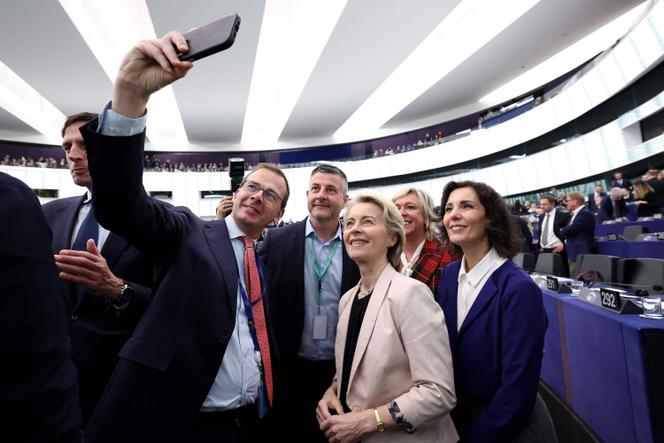


Almost six months after the European elections on June 9, the new EU Commission will get to work on December 1. On Wednesday, November 27, MEPs finally approved the team of 26 men and women who will work with its president, Ursula von der Leyen, for the next five years.
The European Parliament could not afford to drag things out further in a global context in which Europe is surrounded by challenges: the war in Ukraine, the Israel-Palestine conflict, Donald Trump's election to the White House, Chinese ambitions, economic stagnation and global warming.
On Wednesday, Von der Leyen made no secret of her relief at the result of the vote. A total of 370 MEPs voted in favor, 282 voted against and 36 abstained. Yet she did not loudly proclaim it as a victory, given this mediocre score. In fact, it was the worst ever recorded in the history of the European Union, despite garnering votes ranging from the far right to the Greens.
During her first term (2019-2024), Von der Leyen, a former minister under Angela Merkel, had been able to count on a pro-European majority, made up of three political groups: the Christian Democrats of the European People's Party (EPP), the Social Democrats (S&D) and the Liberals (Renew). The June elections confirmed this combination, but with the far right on the rise and the Greens and Renew collapsing, it is less stable.
Not only has the EPP grown stronger, consolidating its position as the Parliament's leading political force, but it can now build an alternative majority, together with the far-right groups European Conservatives and Reformists (ECR), Patriots for Europe and Europe of Sovereign Nations (ENS).
Faced with this new context, Von der Leyen chose to appoint Italian Commissioner Raffaele Fitto, a member of Giorgia Meloni's post-fascist Fratelli d'Italia party, as an executive vice president. While the Italian elected representatives among the ECR were grateful, not all of their group allies followed suit: Poland's Law and Justice party (PiS) voted against the new Commission, as did France's Marion Maréchal (an MEP from the far right Reconquête! party), among others.
By giving this title to a representative of the far right for the first time in the history of the EU Commission, Von der Leyen prompted defections among the S&D and Greens MPs, notably the French ones. "Von der Leyen has enshrined the normalization of the far-right in the institutions. And when the far right advances, Europe retreats," said French MEP Marie Toussaint (Greens).
You have 62.17% of this article left to read. The rest is for subscribers only.
